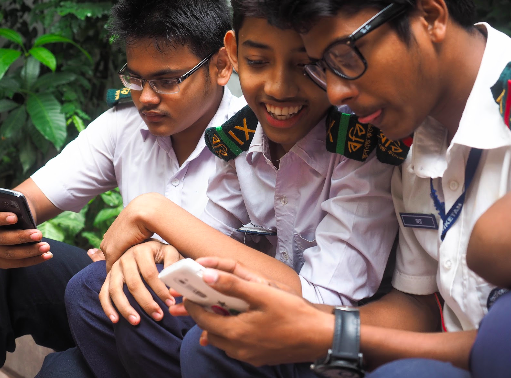Mozilla has released a new report — mzl.la/localcontent — co-authored with the GSMA. Titled “Approaches to local content creation: realising the smartphone opportunity,” our report explores how the right tools, coupled with digital literacy education, can empower mobile-first Web users as content creators and develop a sustainable, inclusive mobile Web.
In emerging markets like India, Bangladesh and Kenya, many individuals access the Web exclusively through smartphones. Indeed, by the end of 2020, there will be 3 billion people using the mobile internet across the developing world.

Improved access is heartening, but a dearth of local content in these regions can render the mobile Web irrelevant, leaving users with little reason to engage. This leads to lost opportunities, and a diminished mobile ecosystem.
In this report, Mozilla and the GSMA explore solutions to this challenge. Mozilla and the GSMA sought to answer three key questions:
- What level of digital literacy is necessary to empower mobile-first users?
- What kind of tools enable users to easily create content?
- Can the right training and tools significantly impact the digital ecosystem in mobile-first countries?
Our findings draw on a range of data: 12 weeks of ethnographic research in emerging markets throughout Africa, Asia and the Americas; one year of user-centered design, testing and iteration of Webmaker for Android, Mozilla’s app for spurring local content creation; two pilot studies exploring the relationship between digital skills on mobile Web usage; and additional analysis.
We explored a range of topics — from language to learning to networks — but reached a central conclusion: Higher skill levels and a larger amount of relevant content would benefit a range of actors, including the mobile industry, government and civil society. If the right investments are made, many more newcomers to the internet will enjoy the benefits of online life, and will be able to create value for themselves and others in the process.
Additional lessons learned include:
- There is a latent appetite to create content in emerging markets. Research participants and user testers were hugely excited and enthusiastic about the idea of creating for the Internet.
- Sharing is a powerful motivator for original content creation. In some of our testing contexts, we have observed that the social incentives for “sharing” content provide the hook that leads a user to generate his or her own original content.
- Designing for the “next billion” requires the same focus and respect for the user as designing for those already online. Simply because some are new to the Web, or to content creation, does not mean that those creating platforms and applications should underrate their ability to handle and even enjoy complexity.
- Users do not want to create the same content as everyone else. During workshops, participants continually broke free of our restrictions, escaping the templates and the grids they were provided with, to experiment with more open-ended and fun concepts.
To read the full report, visit mzl.la/localcontent.
Mozilla and the GSMA began their partnership in 2014, motivated by the growing number of people coming online through smartphones and the desire to spark local content creation. To read past research findings, visit mzl.la/research.



